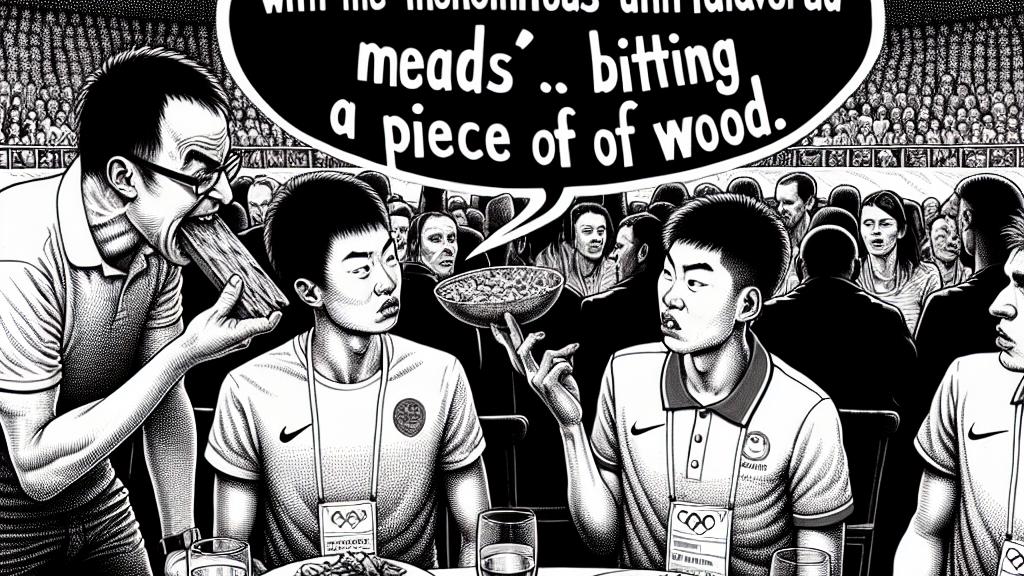From Culinary Disasters to Poetic Reviews: Chinese Athletes Weigh in on Olympic Village Food!
Overview
- Chinese athletes criticized the food quality in the Paris Olympic Village, expressing their thoughts through humor and poetry.
- The athletes’ comments highlight stark cultural differences in culinary expectations and preferences.
- The viral nature of their critiques on social media sparked broader discussions about food diversity in international sports.

Culinary Critiques Spark Conversations at the Paris Olympics
At the Paris Olympics, a light-hearted yet critical dialogue about the culinary offerings in the Olympic Village quickly captured attention. Prominent Chinese swimmer Pan Zhanle led the charge, describing the food as 'the worst' in a poignant manner that had audiences both laughing and nodding in agreement. He notably shared that the only seasoning provided was salt and lamented the lack of flavor by humorously comparing meat dishes to 'biting a piece of wood.' This powerful imagery not only conveys his disappointment but emphasizes the critical role of flavorful and nutritious meals in enhancing athletic performance. The critiques underline an important message: athletes need satisfying meals to thrive, which showcases the necessity for a more thoughtful approach to international culinary offerings at such prestigious events.
The Poetic Art of Food Reviews Among Athletes
Pan's frank yet poetic summaries of his dining experience have turned him into an unexpected culinary critic on social media, where hilarity mixed with angst resonated with audiences worldwide. This blend of wit and dissatisfaction reveals a unique aspect of sports culture, where athletes express their perspectives on food with creativity and humor. His comments became a viral sensation, illustrating how social media can catalyze community connection through shared experiences. This phenomenon exemplifies how athletes can transform complaints into compelling narratives that captivate the public, all the while fostering a deeper understanding of their challenges and experiences while competing on the world stage.
Cultural Reflections on Food: Aligning Culinary Diversity with International Representation
The uproar over Olympic Village food experiences is not solely Chinese; it represents broader cultural reflections on diverse culinary traditions and expectations. While Chinese critiques often focus on blandness, Japanese athletes tend to highlight the artistry and harmony in their meals, revealing a cultural appreciation that differs significantly. Such disparities shed light on the necessity for varied menu options that accommodate a wide range of tastes and dietary needs, ensuring that all athletes feel represented and satisfied. By understanding these cultural nuances and embracing a more inclusive culinary approach, the Olympic experience can be enriched, promoting unity and mutual respect among athletes from diverse backgrounds while celebrating the universal joy of food.

Loading...